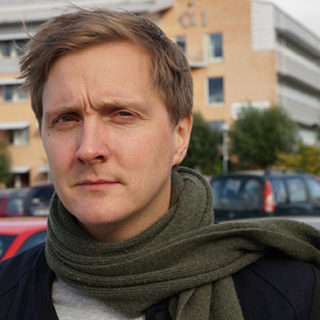Men and women are slowly progressing towards equality
Gender equality is fairly easy for a heterosexual couple – until children come along. This has been true for quite a while.
‟But if we look at the statistics, we see that there has actually been a change since 1990”, says Maria Stanfors, professor at Lund University’s School of Economics and Management.
The main difference is that Swedish men have stepped up and taken on more parental responsibility than previously.
Sweden is sometimes referred to as the world’s most gender equal country. Maria Stanfors, who is a professor of economic history, explains that we have fairly small differences in salary between men and women doing the same jobs.
‟But there is still a lot of work to do. To a great extent, gender equality is about living with one’s choices. For quite a while, very little has been said about the economic side of gender inequality.”
Men and women make different choices with regard to careers and work in the home. This emerges from statistics on the use of time produced by Statistics Sweden. Maria Stanfors has compared how men and women allocate their time.
‟During the whole of the 1900s and into the 2000s, women gradually increased the amount of time they spend on paid work, but did not reduce the amount of unpaid work in the home accordingly. This means that women still assume greater responsibility for the home and the family.”
The time that men dedicate to the home has increased. But they are very particular about how they spend it. Rather than competing with the women for the Sisyphean tasks – cooking, cleaning and laundry – the men occupy themselves with activities that can be considered investments rather than anything else. They do things which increase the value of the home and dedicate time to their relationships with their children.
‟With only slight exaggeration, one can say that Swedish men are more keen to take care of their children than they are to empty the dishwasher.”
“As individuals, we are responsible for our decisions, and thereby for increased gender equality.”
When women take greater responsibility for the home and the family, both their energy and time for their careers run short.
‟Women are still limited on the labour market in a couple of different ways: time and opportunity to take part in various work-related activities, such as business travel and late meetings. Research shows that this is the main factor affecting men’s and women’s career opportunities. Sweden is unique in its equal opportunities for education, gender neutral social security system and a tax system which treats everyone as a separate individual.
But in the end, the individual is responsible for his or her decisions. Equality is possible – but we are affected by norms which influence our decision-making.”
Maria Stanfors observes that we are not always completely rational from a financial perspective.
‟What seems like a good solution in the short term, is not always good in the long term. For example, dividing parental leave in a certain way in a certain family, according to the circumstances prevailing at the time the decision is taken. At that time, perhaps one doesn’t see the long term consequences of the decision.”
It is not always fun to deal with domestic conflicts about how housework and childcare should be shared and carried out.
‟But historically, women’s progress in education, work and family life has been characterised by the negotiation of new solutions. As individuals, we are responsible for our decisions, and thereby for increased gender equality.”
Supported by statistics, Maria Stanfors can feel hopeful about the future.
‟After 1990, there is a change in both men’s and women’s use of time: men gradually take on a little more responsibility in the home, and perhaps take a step back in the workplace – and women have taken a further step out into the labour market, above all with regard to time. And both are keen to spend more time with their children.”
So today’s mothers are not entirely like their own mothers?
‟No – they are a little more progressive.”
Text: Evelina Lindén








